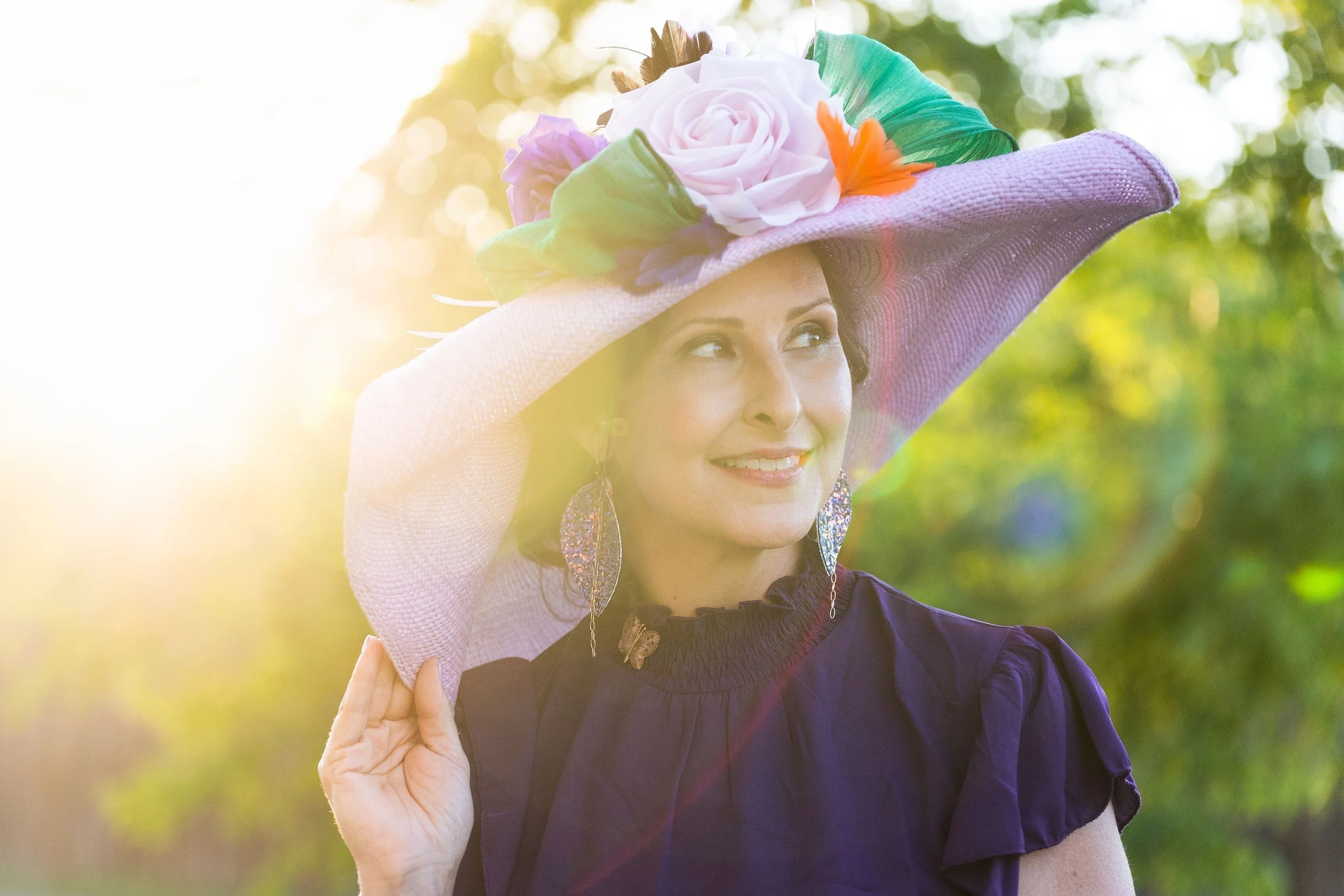By Katy Vernon
Editor’s Note: This is the third dispatch from Katy during her 2017 tour of the United Kingdom. Most of this was written on a train in Wales, where both of her parents were born and raised. The picture above is Katy at her mother’s favorite beach, in the precise spot where, according to relatives, her family had many picnics when she was a child. If you haven’t already, please make sure to also read her first post, The H.A.LT. Tour, and second post, Not Today.
I think I've gotten so used to feeling disconnected that I lost track of the connections I have.
After I lost my parents in my teens, I decided to make my own family, married very young, and became a homebody creating a safe little nest. I realized somewhere along the way that I wasn't a risk taker. Although I had left my home in the United Kingdom and travelled halfway around the world to live in the United States, I was a very anxious and unadventurous person in many ways. I had anxiety about getting on the wrong bus, saying the wrong thing, failing. It became easier to just stay on track and try to do all of the right things.
I tried to control everything and everyone in my life.
That doesn't work. Not for me anyway.
Once I finally admitted to myself that I was struggling, I started to learn the process of letting go.
A year ago, I would have agonized about playing a concert overseas. The sheer amount of things that might go wrong would have overwhelmed me.
The idea of taking time away from home would have also trapped me. Not due to any lack of backing from those I love, though. It was all self-inflicted.
So this year -- in a healthier place personally, and with the encouragement of friends and family -- I dove in.
Six weeks of travel and shows. All over the UK. Almost every few days, I have taken trains, buses, and tubes to all areas of Britain.
The kindness and generosity of strangers has been overwhelming. People literally opening their homes and hearts to me.
I have also walked the routes of my past and visited my ghosts.
The home I grew up in, the schools I attended, the park where I walked my dogs. So much has changed, and yet most of it is the same. I was scared about how that might make me feel.
I recently stood outside my childhood house, and for the first time in years it just looked like a building. Windows, a door, a little garden. Most of it the same as it was, but just a house, not my home.
As part of this tour, I also was invited to play at the hospice where my mum spent her final days. My last memory of her is there. I rode my bike to see her that day, on my own after school. She had asked me to bring strawberries, and I sat in her bed and ate them. She had just had her 47th birthday, and there were cards in her room. I was so nervous making my way there alone, but I'm so grateful today. I didn't know at the time that it would be the last visit, but my Dad didn’t want me to see her once she went into a coma.
It felt so huge to even think about going back. I knew that meant I had to do it. I went back with my ukulele to sing for people there. I didn't say what my connection was to the place. My reason for being there was to use my voice to bring some beauty and happiness to people's day. I have finally learned that I have that to give. Yes, I have experienced tremendous grief. But it helps me to help others, and I can now see that, as much sadness as I carry in my heart, I have equal, if not more, joy to give.
With that deeply meaningful performance at the hospice behind me, I boarded the train to Wales -- making my way, in less than 24 hours -- from the place where my mum passed away to the house where she grew up. My cousin wrote me a family tree (something I have never had) for the occasion, showed me around the old place and and shared her memories of my mum. As it turns out, my mum was her favorite aunt. And to hear her talk about how much she loved my mum was amazingly touching.
This house, too, was just a building, with windows and a door, and a little garden. It was a perfect full-circle moment.
I don't need to visit ghosts because they already live on inside of me, my cousin and my daughters.
Katy Vernon is a Minneapolis/St. Paul-based singer-songwriter. She grew up in London, England, and has been writing and singing as long as she can remember.





